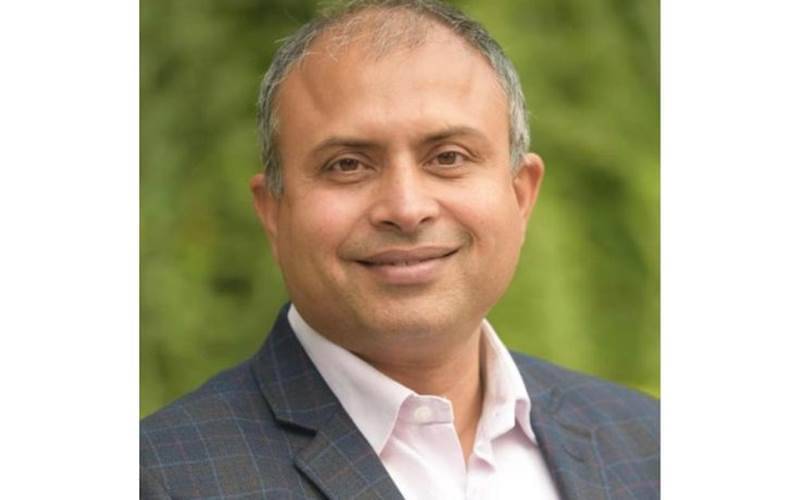New approach by Symphony to solve single-use plastics problem
Symphony Environmental will enable the plastics industry to create a sustainable and economical version of plastics. The d2w biodegradable solution will curb the single-use plastics problem, yet to initiate in India.
02 May 2023 | By Aditya Ghosalkar
As per the United Nations Environment Programme (UNEP) report, about 85% of plastics turn into unregulated waste reaching oceans and landfills, and only 10% of plastics ever produced globally have ever been recycled. While the reduce, reuse, recycle (3R) is often claimed to be one of the most optimum solutions to solve the problem, it has yet to be effective.
Banning plastics is not a solution. The real fix lies in adopting the new technological advancements in plastic manufacturing. The answer today comes in designing and producing a better version of biodegradable plastics using d2W additives by Symphony Environmental, India.
The d2w additive uses pro-degradant in the form of a masterbatch which is added 1% by weight while manufacturing plastic packaging materials. This does not require any change in machinery, equipment and production process. It makes plastic packaging material biodegradable.
These new and modern plastics with d2W additives remain 100% recyclable however if the packaging material ends up becoming single use plastic then the packaging material biodegrades in less than two years. The d2w technology fundamentally changes how plastics are viewed, made and used in the future.
Post degradation, the product changes from a long chain polymers of high molecular weight into low molecular weight monomers or oligomeric fragments and oxygen-containing molecules. It subsequently becomes bio-assimilation food for microorganisms like naturally present bacteria and fungi in soil or aquatic environments. At that stage, it is no longer plastic and has become an inherently biodegradable material and absorbs water.
Sunil Panwar, CEO of Symphony Environmental, said, “In India nearly 40% of the consumer plastic waste ends up becoming single-use plastic and 3.47 million metric tons (MMT) of plastic waste was generated as per the statistics available in the year 2019-20. Plastic consumption in India has grown 23 times from 1990 (0.9 MMT) to 2022 (20.89 MMT). There is an urgent need to adopt sustainable, environmentally safe and economically affordable technology to curb the single-use plastic problem.”
“Our d2w technology, which has been tested as per ASTM D6954, meets all these requirements. Testing is undergoing as per IS 17899 T:2022, and may take over two years. No producer has been able to receive the certificate from the Central Pollution Control Board (CPCB) yet as the testing time and regulatory requirements are extensive. Industry is willing to cooperate and comply with the rules but there is a need to simplify the implementation process,” he added.
Radu Baciu, technical director, Symphony Environmental, explains the current situation and says, “The d2W technology is a revolutionary solution for the single-use plastics. It makes polyolefin plastic materials biodegradable in the presence of oxygen. As per the established global standards, this applied science is adopted in many other countries, is expected to flourish in India with factors including such as ample sunlight and warm temperature to supplement the biodegradation.''
“While the products undergo long duration testing, for producers to offer provisional certificates to carry on manufacturing is well intended. What makes the testing process more uncertain is that IS 17899 T; 2022 is a tentative standard and probably defective therefore BIS has asked MoEFCC not to issue certificates for samples tested as per IS 17899 T:2022. Therefore, a provisional certificate offered by regulators before two years seems practically highly unlikely.”
India has more than 1,50,000 plastic manufacturing units, out of this about 1,30,253 plastic manufacturing units come under the MSME sector. These MSME units employ nearly 16 lakh workers. In several states, production of plastic packaging products has stopped and people are losing their jobs. The cost for testing is anywhere between INR 4.5 to 5.5-lakhs per sample.
To improvise the situation, Symphony Environmental proposes an alternate criterion for reducing biodegradability test duration or adopting an existing global test standard like ASTM D6954. With such supporting amendments, provisional certificates to manufacturers could be issued.
The number of producers of plastic packaging materials are very large and additive suppliers are few, therefore the supplier of biodegradable additives can be certified by CPCB, reducing the cost burden, technical hassle and risk factor on the local plastic manufacturers.
It is also pertinent to state that BIS IS 17899 T:2022 is a tentative standard and was urgently brought out without complete reviews. BIS may adopt an established global test standard like ASTM D6954, which already considers factors like molecular weight reduction to 5,000 Da and a 95% loss in mechanical properties in abiotic degradation and seeks only 60% biodegradation. Intertek, Mumbai, a BIS accredited lab in India, has successfully concluded three complete biodegradability tests on Symphony Environmental’s d2w biodegradable plastic products.
Government has shown serious intent by setting up a committee under the chairmanship of honourable member Niti Aayog (S&T), V K Saraswat, to develop alternative solutions and technologies to deal with the problem of single-use plastics. The committee is looking at the possibility of reducing the testing time so that provisional certificates could be issued without delay.


